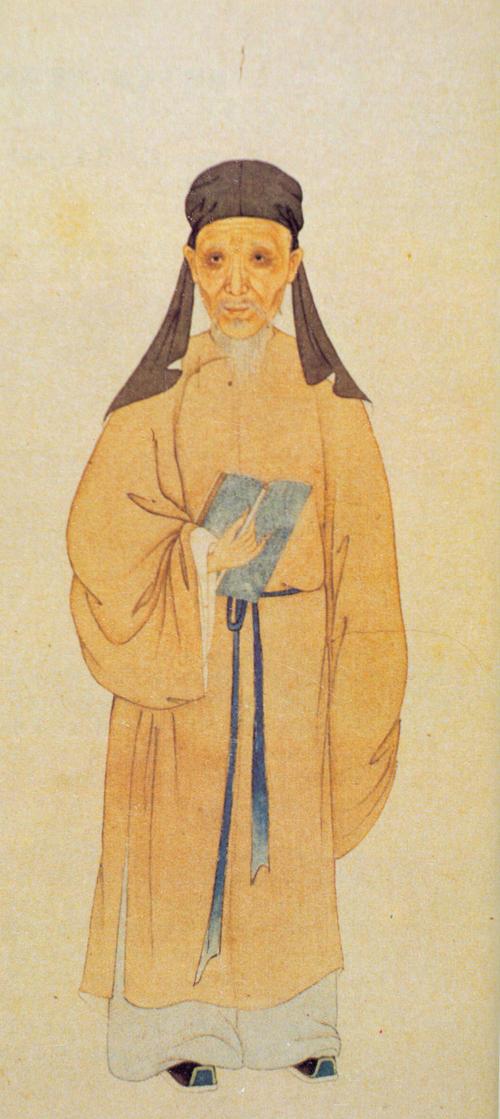Since Wu Sangui put the Qing army into Shanhaiguan, the civil war in Guanguan was raging, zhang Xianzhong, Li Zicheng, the Qing army, and the Southern Ming fought, and finally the Qing army won. The Qing army is Manchu, not Han, in the eyes of the Han people, this is a foreign invasion, many literati do not want to serve the Qing Dynasty at all, either follow zheng chenggong to Taiwan, or like Zhu Shunshui to avoid foreign countries, but the vast majority of literati who are unwilling to serve the Qing Dynasty chose to return to the hidden mountains, among these people, everyone has heard of Gu Yanwu, Huang Zongxi...

Taking Gu Yanwu as an example, although he returned to the hidden mountains and forests, he actually made many efforts to oppose the Qing Dynasty and restore the Ming Dynasty in private, although he was a literati, he insisted on practicing his dream of restoring the country with his own behavior, he went north several times, visited the Ming Dynasty Imperial Mausoleum ten times, traveled to North China, gathered anti-Qing heroes from all over the world, inspected the situation in the mountains and rivers, and did geographical research for the great cause of restoring the Ming Dynasty.
In the early years of Shunzhi, the Southern Ming forces were active in Southern China, Gu Yanwu ran between the various anti-Qing forces, ready to "join forces" them to compete with the Qing government, but these anti-Qing forces were gradually defeated, under such circumstances, Gu Yanwu still did not change his original intention, and wrote a poem "Jingwei" to clarify his ambitions:
All things are uneven, Er Hekong is suffering himself, and he will grow an inch of his body and hold the wood to the end of the ancient world.
I wish to calm the East Sea, my body will not change, the sea has no peace, and my heart will not be desperate.
alack! Jun is not seen, there are many birds in the western mountains, and the magpies come and go to become their own.
Speaking of Jingwei, I think many people have heard the story of the ancient myth of Jingwei reclamation: Jingwei is the younger daughter of Emperor Yan, one day she went to the East China Sea to play, but was drowned, after death her spirit turned into a bird, every day from the mountain to bring stones and grass and trees, into the East Sea, want to drown their own East Sea to fill in.
Gu Yanwu's "Jingwei" can be divided into three paragraphs according to the meaning.
The first four sentences are the first paragraph, this is Gu Yanwu asking Jingwei: There are more uneven things in the world, you see the point yourself, why let yourself be in deep pain and can't extricate yourself! You always use your weak body to hold the wood and stone, fly so far to fill the East Sea, and never stop, to the earth and the sky.
The fifth sentence to the eighth sentence is the second paragraph, which is Jingwei answering Gu Yanwu's inquiry: My wish is to spend my whole life to fill the East Sea, even if I inevitably die in the end, but my heart will never change, the East Sea will not be filled in for a day, and my mind will never change.
The last three sentences are the third paragraph, after Gu Yanwu and Jingwei dialogue, he sincerely expressed his feelings: Gu Yanwu compared the Jingwei birds with other ordinary birds, lamenting that there are so many birds in the world who are holding wooden strips in the West Mountain, but only Jingwei is for his own wishes, and those birds come and go just to make a bird nest for themselves.
Gu Yanwu is writing about the Jingwei Bird, obviously he is writing himself, comparing himself with the Jingwei Bird. In the form of a question and answer, it exposes the inner world of the Jingwei Bird and reflects the unswerving fighting spirit of the Jingwei Bird, even if it is exhausted for a lifetime. Finally, the Jingwei bird is compared to the ordinary bird, which further reflects the extraordinary sound of jingwei.
After the Qing army entered the customs, the Han people joined the anti-Qing team one after another, and many benevolent people sacrificed their lives for this, of course, some people threw themselves into the Qing army for their own interests, such as Wu Sangui and Shang Kexi's generation, who were no different from those ordinary birds, and only had their own interests in their eyes. Those who insisted on resisting the Qing, like Gu Yanwu, had the same ambition as the guard bird.
Gu Yanwu's experience actually proves that his ambition is like a jingwei bird, unswerving, despite the failure of the armed anti-Qing, he still chose to write a book and a theory, providing a reference for later generations to oppose the Qing.